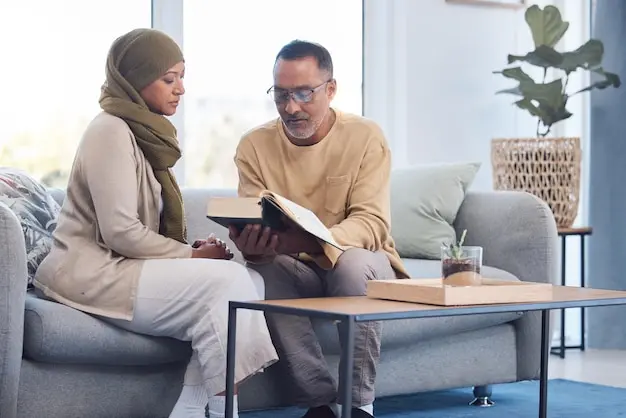Mental health is an essential part of overall well-being, yet it often goes unnoticed or underprioritized. For Muslims, finding culturally competent and faith-based mental health resources can be even more challenging. If you’re looking for Muslim mental health resources in Houston, this guide will provide all the essential information to help you get started.
Recognizing the Value of Mental Health Care That Respects Cultural Diversity
Culturally competent care recognizes the role of religion, culture, and identity in mental health. For Muslims, therapy that incorporates Islamic teachings creates a safe environment to address challenges while staying true to their faith.
In Houston, this means therapists who understand not only mental health issues but also the importance of Islamic principles in navigating these challenges.
Overview of Muslim Mental Health Resources in Houston
Licensed Muslim Therapists
Houston is home to a diverse population, including many qualified Muslim therapists. These professionals combine Islamic values with psychological practices to provide holistic care. From tackling anxiety to offering premarital counseling, Muslim therapists address a variety of needs.
Islamic Counseling Centers
Several centers in Houston focus on Islamic-based counseling. They integrate Quranic principles with modern therapeutic techniques. These centers provide individual therapy, couples counseling, and family therapy within an Islamic framework.
Telehealth and Online Counseling Services
For those unable to visit a physical location, online counseling options are available. Many Muslim therapists in Houston now offer virtual sessions, ensuring accessibility for everyone. This is particularly helpful for individuals who prefer privacy or have transportation challenges.
Support Groups and Community Programs
Support groups provide a sense of belonging and shared understanding. In Houston, local mosques and Islamic centers host mental health workshops and group sessions. These gatherings help individuals connect with others facing similar challenges. muslim mental health resources houstonThey also reduce the stigma associated with seeking mental health support.
Additionally, Houston has community programs designed specifically for Muslims. These programs address issues like grief, parenting, and stress management, all while considering cultural and religious sensitivities.
Integrating Islamic Principles in Therapy
Muslim mental health resources in Houston often blend Islamic teachings with therapeutic practices. This integration includes:
- Quranic Guidance: Using verses and stories from the Quran to offer perspective and comfort.
- Sunnah Practices: Encouraging habits like mindfulness, gratitude, and prayer to promote mental well-being.
- Dua and Spiritual Exercises: Therapists may suggest personalized prayers to strengthen spiritual resilience.
This approach ensures that clients feel spiritually connected while working on emotional healing.
Addressing Cultural Sensitivity and Stigma
Mental health stigma remains a significant barrier in many Muslim communities. The worry about being judged frequently stops people from reaching out for help.
Muslim therapists in Houston actively combat this by:
- Creating Safe Spaces: Offering non-judgmental environments where clients can openly discuss their struggles.
- Promoting Awareness: Educating communities about the importance of mental health through events and outreach programs.
- Respecting Privacy: Ensuring confidentiality to build trust with clients.
By addressing stigma, these resources make mental health care more accessible to the Muslim community.
Insurance and Payment Options
Cost is often a concern for those seeking therapy. Fortunately, many Muslim mental health resources in Houston accept insurance plans. For those without coverage, sliding-scale fees and payment plans are often available.
Here’s how to navigate financial options:
- Check Your Insurance: Look for in-network therapists who specialize in faith-based counseling.
- Ask About Sliding-Scale Fees: Some therapists adjust their rates based on your income.
- Community Resources: Islamic centers may offer free or low-cost counseling services.
How to Choose the Right Therapist
Selecting the right therapist can significantly impact your journey to healing. Here are some tips to find the best fit:
- Look for Faith Integration: Choose someone who incorporates Islamic principles into their therapy.
- Check Their Experience: Ensure they specialize in areas relevant to your needs, like trauma or relationship issues.
- Schedule a Consultation: Most therapists offer free initial sessions to discuss your goals and expectations.
- Consider Cultural Fit: A therapist who understands your cultural background can offer more tailored support.
Success Stories and Testimonials
Hearing about others’ positive experiences can inspire you to take the first step. Many clients in Houston have benefited from combining therapy with their faith.
For example:
- A young professional struggling with anxiety found solace in Quranic mindfulness techniques taught by their therapist.
- A couple overcame communication issues through Islamic premarital counseling.
- A college student battling depression gained confidence through a mix of therapy and community support.
These success stories highlight the transformative power of Muslim mental health resources in Houston.
Frequently Asked Questions
What makes Muslim counseling different from traditional therapy?
Muslim counseling integrates Islamic values with psychological practices, offering a holistic approach that aligns with a client’s faith.
Can non-Muslims benefit from these resources?
Yes. Non-Muslims can gain insights into cultural perspectives while benefiting from the overall mental health support.
Where can I find Muslim mental health resources in Houston?
Local mosques, Islamic centers, and directories like Psychology Today or the Muslim Therapists Network are great starting points.
What should I expect during my first session?
Your first session will likely involve discussing your concerns, goals, and how your faith can be integrated into the therapy process.
Conclusion
Prioritizing your mental health reflects true inner strength. With the variety of Muslim mental health resources in Houston, you can find support that respects your faith, culture, and individuality. Whether through licensed therapists, support groups, or online counseling, these resources provide a path to healing and resilience.

